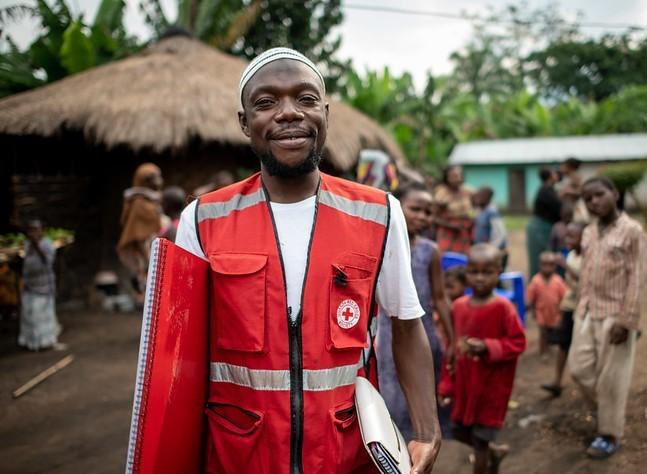Nearly 2 years after the Democratic Republic of the Congo's (DRCs) longest and biggest outbreak began, the country's health officials today declared that the event in the eastern part of the country is over.
Having passed two incubation periods since the last patient was confirmed to be free of the virus, the outbreak centered in North Kivu and Ituri provinces resulted in 3,470 cases, 3,317 of them confirmed and 153 listed as probable. Of those, 2,287 people died from their infections, and 1,170 survived, for a 66% case-fatality rate, according to the World Health Organization (WHO).
The outbreak—the DRC's 10th—began on Aug 1, 2018, was the world's second largest, and began just a week after a small 11-week outbreak in the country's northwestern Equateur province was declared over. And now the event is bookended by a fresh outbreak in the same area of Equateur province.
In a statement today, the WHO congratulated the DRC and all groups that helped end the outbreak.
WHO Director-General Tedros Adhanom Ghebreyesus, PhD, said in a statement, "The outbreak took so much from all of us, especially from the people of DRC, but we came out of it with valuable lessons, and valuable tools. The world is now better-equipped to respond to Ebola. A vaccine has been licensed, and effective treatments identified."
However, he warned about complacency, emphasizing that viruses do not take breaks and that strong surveillance is needed to detect flare-ups. The Ebola virus can linger in protected body areas of survivors, such as eyes and testes, which has been known to trigger new clusters. "Ultimately, the best defence against any outbreak is investing in a stronger health system as the foundation for universal health coverage."
Large outbreak with a volatile backdrop
As soon as the outbreak in the east was confirmed on Aug 1, 2018, health officials were worried, because the cases were detected in an active conflict zone in a province that is home to about 1 million displaced people. A tumultuous presidential campaign also took place during the outbreak.
Throughout the outbreak, responders battled community mistrust over whether the virus was truly a threat and some pushback about the vaccine. Citizens in outbreak hot spots were hurt and killed in rebel attacks, which prompted even more unrest as communities felt vulnerable and lashed out with protests, some of which included attacks on the response itself.
A few months into the outbreak, attacks by armed rebel groups in Beni suspended vaccination activities and forced the evacuation of WHO staff to Goma and led other groups to also relocate their efforts. As tensions extended into 2019, armed militia group attacked clinics in other hot spots, including Butembo and Katwa. The outbreak in Butembo killed Richard Valery Mouzoko Kiboung, PhD, an epidemiologist deployed by the WHO.
As the outbreak approached its 1-year mark, a few cases were detected in the North Kivu provincial capital city Goma, and with growing fears about the threat to the region, the WHO on Jul 17, 2019, declared that the DRC's outbreak was a public health emergency of international concern.
Soon after, four cases were detected in neighboring Uganda, all involving people who had traveled from the DRC. They never sparked further spread in that country, however.
Medical and public health achievements
Though the outbreak faced several tough challenges, including multiple attacks and spikes in Ebola activity following the attacks, the event is also marked by public health and scientific achievements, which included the massive deployment of the VSV-EBOV vaccine, Tedros noted.
That vaccine has so far reached more than 303,000 people. Officials also launched a second vaccine in the DRC, the two-dose Ad26.ZEBOV/MVA-BN-Filo regimen made by Johnson & Johnson.
In addition, clinical trials of four investigational medications cleared for compassionate use narrowed the group to two that stood out as more effective: an antibody cocktail from Regeneron and mAB 114, a treatment based on antibodies from an Ebola survivor.
Public health teams in the DRC also prevented the virus from spreading widely in Goma and from triggering outbreaks in neighboring countries, which was feared, given that the outbreak's epicenters weren't far from borders with Uganda, Rwanda, and South Sudan.



















